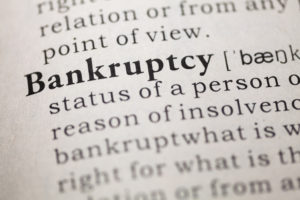 Are you someone who is struggling with their finances? If so, know you are not alone. Times have been hard, especially in recent years, and many people are just trying to survive. In the midst of such stress, it can be difficult to know what to do next. Bankruptcy can be a great resource for those who have debts and expenses that are much more than what they earn on a consistent basis. With so many bills and other financial expectations that are thrown our way, it’s no wonder that most of us will encounter financial hardship at one point or another.
Are you someone who is struggling with their finances? If so, know you are not alone. Times have been hard, especially in recent years, and many people are just trying to survive. In the midst of such stress, it can be difficult to know what to do next. Bankruptcy can be a great resource for those who have debts and expenses that are much more than what they earn on a consistent basis. With so many bills and other financial expectations that are thrown our way, it’s no wonder that most of us will encounter financial hardship at one point or another.
It’s normal to have questions about bankruptcy and what are realistic steps towards filing if that’s something you are interested in doing. Here are bankruptcy tips that a bankruptcy lawyer Bridgeport, CT residents trust from The Law Offices of Ronald I. Chorches may answer during consultations about bankruptcy:
How many bankruptcy chapters are there?
There are several bankruptcy chapters to choose from, each different from the rest, that are intended for certain people or businesses in specific situations. The six bankruptcy chapters for the United States include Chapter 7, Chapter 9, Chapter 11, Chapter 12, Chapter 13, and Chapter 15. Chapter 7 bankruptcy is referred to as “liquidation bankruptcy”, and is the most commonly filed chapter. This allows a debtor to liquidate their assets so it can be distributed to creditors. The other most prevalently used bankruptcy chapter is Chapter 13, which may be called a “wage earner plan”, and enables an individual with regular income to create a repayment plan that satisfies a portion or all of their debts.
Will I have to list all of my assets when filing for bankruptcy?
It is likely to be required of you to take a “means test”, in which you disclose the entirety of your income and assets, which assesses your ability to pay off creditors. If you intentionally leave out certain income or assets in an attempt to hide what you want to keep, your case will be immediately dismissed without further consideration. You may also be unable to file for these debts ever again. A bankruptcy trustee will need access to your financial records, so your deception efforts are likely to be noticed.
Can I give my assets away to friends or family?
As tempting as it may be to give away your assets to those close to you so they don’t get caught up in bankruptcy, this is potentially risky behavior. Don’t start giving away your property, cars, electronics, jewelry, or cash to friends and relatives with the knowledge that they will return it later. Giving away assets around the same time that you file for bankruptcy is a quick way to have your case dismissed. There are bankruptcy chapters you may be eligible to file for that won’t take your assets, but that is something to discuss with your bankruptcy lawyer, such as a team member from The Law Offices of Ronald I. Chorches.
There should be no shame in realizing that you need financial help. There are tools available to people that can help them get on the path to more secure financial footing. Bankruptcy is a serious step to take, but can be one that is useful for those in true need of assistance.
